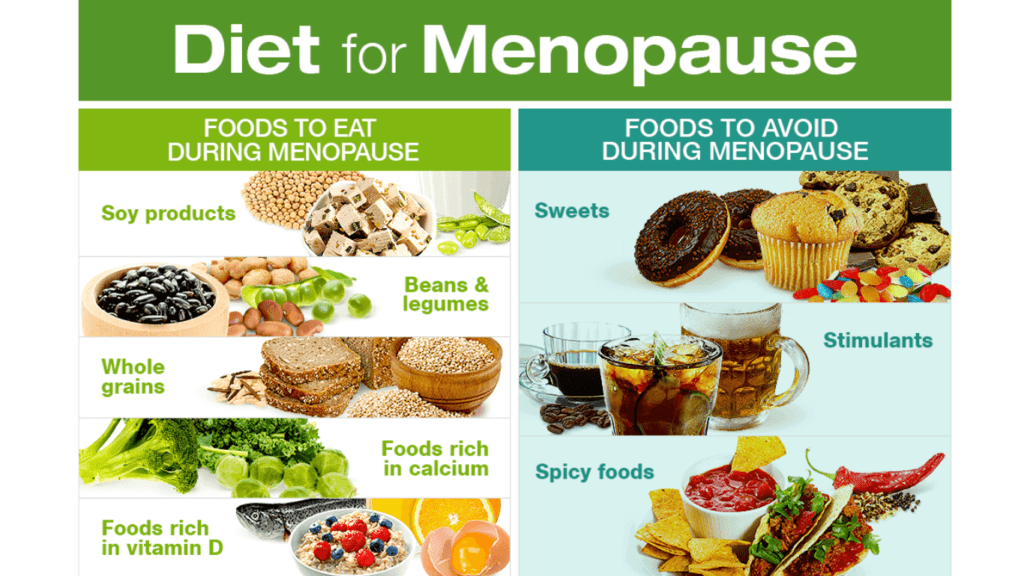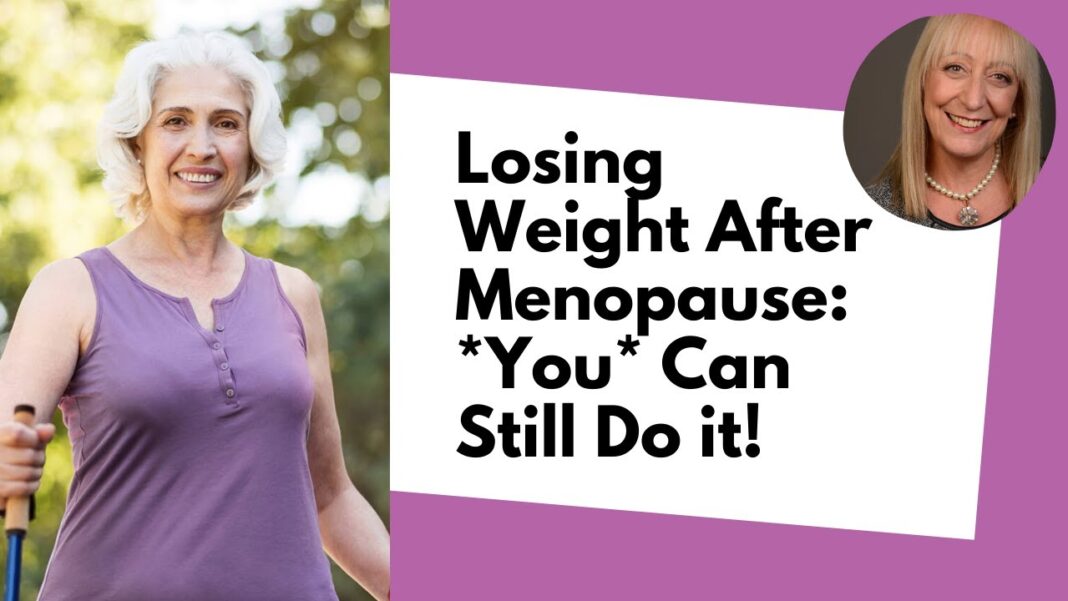In navigating the complexities of menopause, understanding its impact on weight and health is crucial. This article delves into the science behind menopause and weight management, presenting actionable strategies and a structured approach through “The Menopause Diet-5 day plan to lose weight” to support women in their journey towards optimal health during this transformative stage of life.
Menopause is a natural biological process that marks the end of a woman’s menstrual cycle. It is diagnosed after 12 consecutive months without a menstrual period and typically occurs in the late 40s to early 50s. However, menopause can also happen earlier due to certain medical treatments or conditions.
Understanding the 3 Stages of Menopause
Perimenopause
Perimenopause, also known as the menopausal transition, is the phase leading up to menopause. During this time, hormone levels fluctuate, leading to irregular periods and various symptoms like hot flashes and mood changes.
Menopause
Menopause itself is defined as the point in time when a woman has not had a menstrual period for 12 consecutive months. Hormonal fluctuations stabilize, and symptoms may persist but often diminish in intensity.
Postmenopause
Postmenopause refers to the years following menopause. Hormone levels remain low, and menopausal symptoms usually subside. However, postmenopausal women are at increased risk for certain health conditions like osteoporosis and heart disease.

Symptoms of Menopause
Menopause brings about a range of symptoms, which can vary in severity and duration among women. Some common symptoms include:
- Hot flashes: Sudden feelings of warmth, are often accompanied by sweating and flushing.
- Night sweats: Episodes of intense sweating during sleep, lead to disrupted sleep patterns.
- Mood swings: Fluctuations in mood, including irritability, anxiety, and depression.
- Irregular periods: Changes in menstrual cycles, including shorter or longer periods, heavier or lighter bleeding, or skipped periods.
The Link Between Menopause and Weight Gain
Menopause is a natural biological process that marks the end of a woman’s reproductive years. It typically occurs in women in their late 40s or early 50s. One of the most common symptoms associated with menopause is weight gain, which can be frustrating and challenging to manage.
Weight gain is a common concern during menopause, and several factors contribute to this phenomenon:
- Hormonal changes: Decreases in estrogen levels can lead to changes in fat distribution, often resulting in increased abdominal fat.
- Metabolism slowdown: Aging and hormonal changes can cause metabolic rates to decrease, making it easier to gain weight.
- Lifestyle factors: Changes in diet, exercise habits, and stress levels can all influence weight gain during menopause.
How long does menopause weight gain last?
The duration of menopause-related weight gain varies among women. Some may experience weight gain only during perimenopause or menopause, while others may continue to gain weight into postmenopause. On average, menopause-related weight gain may last for several years.
How to Avoid Weight Gain During Menopause?
While menopause-related weight gain is common, it’s not inevitable. Adopting healthy lifestyle habits can help prevent or minimize weight gain:
- Maintain a balanced diet: Focus on whole foods, fruits, vegetables, lean proteins, and healthy fats while limiting processed foods, sugar, and refined carbohydrates.
- Stay active: Engage in regular exercise, including cardio, strength training, and flexibility exercises, to boost metabolism and maintain muscle mass.
- Manage stress: Practice stress-reduction techniques such as meditation, yoga, deep breathing exercises, or hobbies to minimize emotional eating and cortisol levels.
- Prioritize sleep: Aim for 7-9 hours of quality sleep each night to regulate hormones, support metabolism, and reduce cravings.
The Science Behind Menopause and Weight Loss
While losing weight during menopause can be challenging, it’s not impossible. Understanding the science behind menopause and weight loss can help women achieve their goals:
- Hormonal influences: Hormonal changes during menopause can affect appetite, metabolism, and fat storage, making weight loss more difficult.
- Metabolic changes: Aging and hormonal shifts can slow down metabolism, making it important to adjust caloric intake and exercise habits accordingly.
- Role of muscle mass: Maintaining or increasing muscle mass through strength training exercises can help boost metabolism and support weight loss efforts.
Foods that Support Weight Loss during Menopause
Certain foods can help support weight loss during menopause by providing essential nutrients, promoting satiety, and regulating hormones:
- Lean proteins: Include sources like chicken, fish, tofu, beans, and lentils to support muscle mass and keep you feeling full.
- Fibrous vegetables: Load up on non-starchy vegetables like broccoli, spinach, kale, and peppers for fiber and nutrients with minimal calories.
- Healthy fats: Incorporate sources like avocados, nuts, seeds, and olive oil to promote satiety and support hormonal balance.
- Whole grains: Choose whole grains like quinoa, brown rice, oats, and barley over refined grains for sustained energy and fiber.

The Menopause Diet 5-Day Plan to Lose Weight
The Menopause Diet 5-day plan to lose weight is here:
Day 1:
- Breakfast: Greek yogurt with berries and nuts
- Lunch: Grilled chicken salad with mixed greens, avocado, and balsamic vinaigrette
- Dinner: Baked salmon with roasted vegetables and quinoa
Day 2:
- Breakfast: Spinach and feta omelet with whole-grain toast
- Lunch: Turkey and vegetable stir-fry with brown rice
- Dinner: Lentil soup with a side of steamed broccoli
Day 3:
- Breakfast: Oatmeal topped with sliced banana and almond butter
- Lunch: Chickpea and vegetable wrap with hummus
- Dinner: Grilled shrimp skewers with zucchini noodles and marinara sauce
Day 4:
- Breakfast: Smoothie made with spinach, berries, protein powder, and almond milk
- Lunch: Quinoa salad with roasted vegetables, feta cheese, and lemon tahini dressing
- Dinner: Baked tofu with stir-fried bok choy and brown rice
Day 5:
- Breakfast: Whole grain pancakes with Greek yogurt and mixed berries
- Lunch: Tuna salad lettuce wraps with cucumber and tomato
- Dinner: Grilled steak with asparagus and sweet potato fries
Conclusion
Menopause is a natural transition in a woman’s life that comes with various symptoms, including weight gain. However, with the right approach to diet, exercise, and lifestyle, women can manage their weight effectively during this stage. By understanding the science behind menopause and weight loss and following a balanced diet like the Menopause Diet 5-Day Plan, women can navigate this transition with confidence and maintain their health and well-being.
FAQs (Frequently Asked Questions)
- Can menopause cause weight gain?
- Yes, hormonal changes during menopause can contribute to weight gain, especially around the abdomen.
- How long does menopause weight gain last?
- Menopause-related weight gain can last for several years, but individual experiences may vary.
- What are the best exercises for menopausal weight loss?
- A combination of cardio, strength training, and flexibility exercises can be beneficial for weight loss during menopause.
- Are there any supplements that help with menopause weight loss?
- Some women find supplements like calcium, vitamin D, and omega-3 fatty acids helpful for managing weight during menopause, but it’s essential to consult with a healthcare professional before starting any new supplements.
- How does stress impact weight during menopause?
- Stress can lead to emotional eating and increased cortisol levels, which can contribute to weight gain during menopause. Managing stress through relaxation techniques and self-care activities is essential for maintaining a healthy weight.
